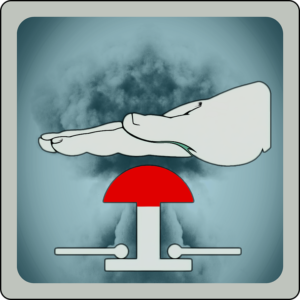 by Rivera Sun
by Rivera Sun
A few weeks ago, my mother and I sat down at a shared table in a popular and crowded restaurant in Santa Fe, New Mexico. Our brunch partners were total strangers. As the husband and wife introduced themselves as US Air Force veterans, my mother shot me a look. The last time we were together, I assailed my cousin’s father-in-law with an enthusiastic summary of the power of nonviolent struggle before learning he was a high-ranking commander in the US military, in charge of parts of several wars I’d protested against over the years. We were at a family wedding. My mother was standing behind me turning purple as I told one of the most powerful men in the military that since nonviolent struggle succeeds twice as often as violent means, maybe the Pentagon should switch methodology.
That’s me! Your family peace activist. A cheerful, fairly likeable, five-foot-five, one hundred and twenty pound, red-headed radical who looks more like Anne of Green Gables than a protest-slogan shouting activist. I have a slew of “putting-my-foot-in-it” stories from various weddings and family reunions throughout my thirty-six years of life. My mother’s nervous glance isn’t without warrant as the veterans ask me what I do for a living.
“I’m a peace activist, a social protest novelist, and a nonviolent action trainer,” says the part of me that really enjoys a good social fireworks explosion.
“That’s good,” says the man. (I later learn that he used to fly nuclear-bomb carrying aircraft like the one I saw in Dr. Strangelove.) “We really need more peace in the world.”
And there you have it. I’ve had this conversation more times than I can count. Whether you’re a peace activist, a veteran or military member, or neither, we all generally like the idea of peace. Most of us think there should be more of it in the world. Where we diverge, however, is how we get to peace. After all, General Curtis LeMay thought if we just “bomb it back to the Stone Age”, Vietnam would be very, very peaceful. (Not to mention dead.)
As brunch goes on, I learned that the veteran across from me flew in circles his entire career, just waiting for the order to push the button and drop the bomb. He only had a few heart-pounding moments, he said.
A memory of my conscientious objector and anti-Vietnam War organizer father brought a smile to my lips that has nothing to do with the deliciousness of my breakfast. When I was a teenager, my father launched into a tirade about personal responsibility. He said you can’t just follow orders – the Nuremburg Trials proved that. You had to follow your principles.
“If your general told you to push that button to drop the Bomb, would you do it?” he asked. “I wouldn’t do it. Would you?”
This question from my father has an awkward habit of popping to mind at moments like this, when I’m sitting across the brunch table from a former Cold War-era Air Force pilot. My father used it metaphorically to talk to his daughter about personal responsibility, but this veteran confronted the question literally. He never had to answer it, fortunately for all of us, because the false alarm or stand down orders came before his finger reached the button.
The thing is, the metaphorical is connected to the literal. A nuclear bomb being dropped is not the result of one finger on one button. That moment is preceded by millions of other small choices that make that button-pushing moment possible. Those choices show up when world leaders exchange tweeted threats on social media. They appear when history teachers gloss over the horrific effects of nuclear weapons. They arrive when presidents fund trillions of dollars for nuclear arsenal expansion. They come closer when United Nations representatives stall, block, and refuse to sign treaties like the recent one signed by 122 other nations to ban nuclear weapons. They draw nearer as thousands of workers at nuclear facilities like Los Alamos National Laboratory drive to work each day. They come when nuclear industry lobbyists sway politicians into supporting huge profits and salaries for those who make weapons of unbelievably mass destruction.
Those button-pushing moments come when you don’t talk about nuclear weapons at the brunch table. When a nation becomes complacent, ill-informed, and generally oblivious to the dangers of nuclear weapons, the likelihood of repeating the horrors of Hiroshima and Nagasaki creeps closer. We must be bold enough to break silence, to talk to the powerful military commander who happens to be your cousin’s father-in-law, or to the nuclear engineer who does corpse pose at the same yoga class as you, or to tweet back to the president to “not even joke about that”.
If you wouldn’t personally push the button to drop the nuclear bomb, you should be doing everything in your power to move the fingers that will do it, away from that button. And that includes de-escalating tensions with North Korea. There are a thousand ways to move trigger-happy fingers away from the bomb button. Each one of those moments is as important as a military service member who asks him or herself the question my father asked me as a teenager:
“If your general told you to push that button to drop that Bomb, would you do it? I wouldn’t. Would you?”
___________
Author/Activist Rivera Sun, syndicated by PeaceVoice, is the author of The Dandelion Insurrection and other books. www.riverasun.com